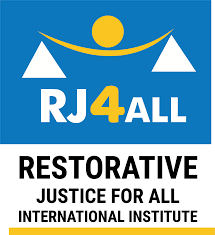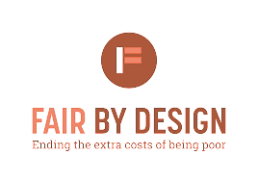Spotlight on Restorative Justice for All
Spotlight Interview with 4in10 Member RJ4A
- How are you helping to tackle child poverty in London?
The Restorative Justice for All International Institute (RJ4All) is a charitable, user-led NGO with a mission to address poverty and advance community cohesion and human rights. We redistribute power in a more equal way by delivering social justice and poverty relief projects, educational programmes, intercultural dialogue, internships and high-quality volunteering opportunities to the most marginalised groups of society. Child poverty in London is not only a reality, but also a persistent societal failure. That is why we put emphasis on making a difference by providing local direct services from the RJ4All Rotherhithe Community centre, where we are based. It is not possible to achieve equality and community cohesion, if poverty and disadvantage are not rooted out first.
Since COVID19, we prioritized poverty relief and wellbeing projects, focusing on making a change locally and by prioritizing services for groups who are faced with extra challenges. One of these groups are children and young people in the South East London area where we are based. These local services are provided from the RJ4All Rotherhithe Community Centre, which has become a hub of community empowerment and cohesion. It offers a food-bank, a community fridge, free sport classes, a community library, COVID19 tests and educational workshops to children, young people and professionals. It is also a safe place for anyone who wants to pop in for a coffee, use our facilities or just chat with our interns, volunteers and team.
- Share with our members something positive about your organisation’s achievement or service.
Last year, RJ4All was the recipient of the Best Charity Award from the Southwark Business Awards due to its youth-led COVID-19 poverty relief project “You are not Alone”. During the pandemic, children and young people came together and with the support of the RJ4All Director, Dr. Gavrielides, they set up the project to help their peers who were struggling. The project started with a small grant that RJ4All managed to secure, providing food and PPE to children, young people and their families. It then quickly expanded across London, resulting in generating over 500 volunteer placements, a mental health helpline run by children and young people for children and young people, online courses and a bank of online resources, internships and online fitness classes. The project is now under the auspices of the independent youth-led FRED campaign, hosted by RJ4All. Dr. Gavrielides also received the Southwark Civic Award 2021 as a result.
- What can other network members learn from you or find out more about through you?
We encourage members to learn more about restorative justice and its underlying value of power sharing. Restorative justice is not just a justice practice. It is an ethos and a methodology for carrying out projects, or even how to lead our lives. We would be happy to introduce members to restorative justice and we encourage them to take our free CPD certified courses by visiting https://rj4all.uk/online/
- What would most help you achieve your goals?
Our mission is to address poverty and advance community cohesion and human rights. We do this by using the power of education, sports and art, as well as the practices and values of restorative justice including power sharing, fairness, equality, dignity and respect. We start locally and thus any support for our community service provision in SE16 London would be much appreciated. Our food bank and community fridge are always in need for stocking up!
- Why did you join 4in10? What do you enjoy about being part of the 4in10 network?
We were very pleased to join the campaign in October (London Challenge Poverty Week), and we very much enjoyed working with the network given that we share similar values and goals. We often operate in silos making our work harder and our impact smaller. By connecting our minds and hearts, we come closer to addressing power abuse and the inequality that impacts on our children.
4in10 Newsletter 6th Jan 2022
Read our fortnightly newsletter here with news, calls to action, funding, jobs, free training and more. To receive this in your inbox every other Thursday just complete our . Everything is completely free!
4in10 Newsletter 09/12/21
4in10 Newsletter with data, reports, research, job vacancies, funding oopportunities and more. To read this issue click here. To receive the newsletter fortnightly straight to your inbox, join 4in10, London's child poverty network. It is completely free and gives advance notice of training and events and much more.
Timewise Video on Flexible Working
Timewise Webinar
Can flexible working help towards supporting low paid workers to progress and move out of poverty? Presenting the flexible working index and a discussion about flexible working as a real alternative.
https://timewise.co.uk/article/flexible-job-index-2021-a-timewise-roundtable/
Putting the onus on employers to enable all jobs to be flexible and for flexibility not to be a barrier to progression or keep people (mostly women) trapped in low paid work.
Human Rights Perspective on 'Levelling Up'
4in10 sees poverty as an abuse of human rights. As Nelson Mandela put it:
'Overcoming poverty is not a gesture of charity. It is an act of justice. It is the protection of a fundamental human right, the right to dignity and a decent life. While poverty persists, there is no true freedom.'
Equally Ours have published an excellent, evidence based report written by Belinda Pratten, Levelling Up: Firm Foundations.
Written from an equalities and human rights perspective it covers work, social security, social care, civil society and housing as well as the wider issues of public procurement and investment. A great Christmas holiday read.
Fair By Design Blog. Innovation, fairness and a just transition to Net Zero
Fair By Design – The Poverty Premium.
Martin Coppack is Director at Fair By Design and Carl Packman is Head of Corporate Engagement and this article originally appeared on the Social Market Foundation website.”
By their very nature, essential services such as energy, credit, and insurance, are needed by everyone. However, these markets have been designed in a way that results in many people being treated less fairly. As Fair By Design’s research shows, poorer people pay more for products and services than those who are better off – known as the poverty premium.
The University of Bristol found that the poverty premium affects almost every low-income household, costing an extra £490 a year, on average. Low-income households experience the poverty premium in the energy market in a number of ways. They may use pre-payment meters for domestic fuel rather than paying by direct debit, or may prefer to pay on receipt of a bill to help manage a budget. Many low-income households are also not switched to the best fuel tariffs, which is also a poverty premium. These households are less likely to switch sometimes because they have other more pressing issues to deal with, which manifests in less capacity to engage in the market, which is known as the ‘scarcity mindset.’[1] It is not the same as consciously avoiding actions that might upset tight financial control, such as switching providers. They also may not be able to switch because of higher rates of digital exclusion, owing to a lack of ability or equipment to go online.
Research commissioned by Fair By Design found that people with certain protected characteristics are more likely to be paying a poverty premium, even when compared with low-income households as a whole. People from Black, Asian, and other ethnic minority households are more likely to be paying extra costs for energy, and paying on receipt of a bill, rather than by direct debit, which is usually cheaper. Single parents are more likely to pay for energy through more expensive prepayment meters. These groups are more likely to be in low-paid or insecure work and therefore need flexible payment methods to help keep control of their finances. Disabled people are more likely to be paying by either of these methods, than non-disabled people.
The poverty premium is particularly pertinent at the moment since poorer households suffer disproportionately in hard times. There are now millions more people facing economic hardship as a result of the pandemic. The ongoing gas price crisis means that the cost of heating the average home could also double.
Why does the poverty premium exist?
Essential products and services are too often designed for ‘super consumers.’ These are people who never become ill, always have a steady income, are able to understand complex terms and conditions and always have the time and technology to easily find the best deal. This is not a reality for everyone. There is a disconnect between social and regulatory policymakers and people’s lived experiences of poverty and exclusion, and a belief that a market based on competition benefits all consumers. In practice, firms compete for the most profitable and engaged consumers. It means that for many people products and services do not meet their needs or even that they are excluded altogether.
Inclusive Design: Understanding how different groups and consumers experience products
Across essential services regulators, inclusive design is increasingly recognised as a way to ensure markets are fair and inclusive, especially for consumers in vulnerable circumstances and on low incomes.
Inclusive design is a toolbox that helps design products and services that are accessible to as many people as possible. It is different to ‘traditional’ market research in that it is not simply about testing pre-existing solutions and hypotheses. It starts by talking to people with additional needs to understand the problems from their perspective, and designing from there. Rather than shaping the consumer around the product or service, firms start with people where they are, and co-design with them. This is especially important as the energy system becomes increasingly digitised, and we transition to net zero.
Instead of designing for a mythical ‘average’ user, firms should therefore understand people’s actual experiences and how these might put them at a disadvantage. In other words, what are they vulnerable to, and why?
There are huge benefits to firms from adopting an inclusive design approach. By involving customers in the process of product design and development, it increases the likelihood of adoption, and reduces the need for solving problems after they occur, through customer service, for example.
The role of government and regulators
At the same time we know that firms will only design inclusively, to a point. There are always going to be some consumers that are deemed less desirable and for whom competition alone will not help. Markets need to be regulated to serve everybody. This means that Government (BEIS) and regulators (Ofgem) should not only be encouraging firms to design inclusively, they should be applying inclusive design principles to their own work. They should shape their own policies around the consumer, especially those most vulnerable and least heard – rather than trying to make such consumers fit their desired regulatory intervention. It is not enough to rely on competition and the belief that empowered consumers drive the market.
For instance, consumers have a role in designing the appropriate policy steps towards decarbonisation. This is very important, since we need to ensure that the cost of the transition to renewable energy sources is not placed disproportionately and unfairly on low income groups. Although many UK households are reportedly willing to accept some increase in their bills to help finance the future energy transition, this will not be possible for all households – particularly those with little slack in their existing household budgets, or who do not own their own home.
Ofgem and BEIS should adopt an inclusive design approach to understanding the needs of all consumers (particularly those on low incomes) and use this approach to help set their priorities, develop and implement interventions, and assess their effectiveness. This means doing things differently, and engaging with low income people directly – placing them at the heart of decisions.
To help with this, Fair By Design, along with our partners Money Advice Trust, has published a practical guide on what inclusive design means and how it can be incorporated into the work of regulators.
The future of price protections
An inclusive design approach to policymaking will help identify where the limits are for the market serving certain groups of consumers, and for whom additional protections – such as price caps and targeted “social” tariffs – are needed.
In a Fair By Design study of low income households accessing Turn2us’ services, researchers compared the costs of the energy poverty premium in 2016 and 2019 to assess the degree to which the retail energy market has changed. [2] While their findings showed the positive impact of regulation, low-income consumers still face excess costs for their energy.
For example, the gap between the Standard Variable Tariff and the best online-only fixed tariff had reduced from £317 in 2016, to £213 in 2019, a reduction of over £100. [3] The gap between the best pre-payment meter tariff and the best online-only fixed tariff had almost halved, dropping from £227 in 2016 to £131 in 2019.[4] This shows a strong correlation between price protections and a reduction in the poverty premium.
This is very welcome news and shows that sensible regulation and a focus on price to protect consumers is achieving good outcomes. The focus now should be on how to narrow the gap even further, to entirely remove the poverty premium, through a combination of inclusively-designed innovations and policy changes.
About Fair By Design
Fair By Design is dedicated to reshaping essential services, such as energy, credit and insurance, so they don’t cost more if you’re poor. People on low incomes and in poverty pay more for a range of products including energy, through standard variable tariffs; loans and credit cards, because of higher interest rates; and expensive insurance premiums, by living in postcodes considered higher risk. This is known as the poverty premium.
We collaborate with industry, government, and regulators to design out the poverty premium. Our Venture Fund provides capital to help grow new and scalable ventures that are innovating to make markets fairer. The Barrow Cadbury Trust runs our advocacy work, and Ascension manages the Venture Fund.
To download the Fair By Design and the money Advice Trust guides on inclusive design visit: https://fairbydesign.com/inclusive-design/ There is one for regulators (and social policy makers) as well as one for firms.
Notes
- [1] Scarcity: The True Cost of Not Having Enough, Sendhil Mullainathan & Eldar Shafir (2011)
- [2] Although average figures of the poverty premium are not comparable across the two studies, due to differences in methodology, the calculation of the premiums remained the same and so costs are comparable.
- [3] Drawn from the average across Big 6 suppliers and across household size.
- [4] Drawn from the average across Big 6 suppliers and across household size.
Support the campaign to keep London's Public Transport flowing.
Keeping the Wheels On
why fair funding for London’s transport system matters for those living on low incomes
Blog by Katherine Hill. 4in10's Strategic Project Manager.
It has been widely reported that Transport for London is facing a funding crisis which will come to a head this week when its current emergency funding deal expires. The causes of this crisis are complex and contested. But what is clear is that unless agreement can be reached quickly, Londoners will soon feel the impact of cuts to the capital’s transport services - and none more so than Londoners living on low incomes.
Child poverty in London is in large measure driven by the sky-high cost of living in the city. In addition to well documented high housing and childcare costs, Londoners also spend the highest amount in the UK on transport (an average of £137 a month).[1] If fares have to be increased to plug holes in Transport for London’s budget, then this will be yet another additional cost that many families struggle to meet.
As our ‘Flying Against Gravity’ report published during this year’s London Challenge Poverty Week shows, access to affordable transport is essential to ensuring that families can get to work, take children to school and visit hospitals.[2] People told us they were concerned about affordable transport because it is an enabler, without it they miss out on things such as jobs, social interaction, and education. One young man explained how not being able to afford to use the transport network leads to a sense of exclusion:
“London is meant to be someone's home, yet you have all of these boundaries and factors that just stop working class people from accessing certain spaces.” Joshua, aged 18-20, Enfield.
Without money or access to transport, people are denied their right to educational opportunities that otherwise might help them break out of the poverty cycle:
“I was...having to travel a bus and a train to get to college. So, if I'm honest, I probably went in a couple of days a week. So as a result, I didn't do very well in my A-levels because I was broke. I rarely went in because the money just didn't really stretch.” Rhiya, aged 25-30, Bromley.
In addition to these direct effects on those who are financially struggling, if public transport services are reduced it will also have repercussions for efforts to cut the number of cars on our roads. As night follows day this will mean that the effects of traffic congestion such as air pollution and road danger increase, and we know that these disproportionately affect some groups including those on low incomes.[3]
So, it is critically important that the Government and Transport for London come together this week to reach a funding agreement that will keep our trains, buses, tubes and trams running at affordable cost. Failure to do so will impact on all Londoners, but without doubt, those living in poverty would feel the effect of cuts to services the most. Without affordable public transport, streets will be dirtier and more dangerous for children, schools and jobs will be less accessible to young people, and poorer families will be constrained to small areas of the city. This would be a huge step backwards when what they deserve is a sustainable, inclusive city.
Take action today and support London TravelWatch’s campaign to #keeplondonmoving by taking their quick, easy action here: https://www.londontravelwatch.org.uk/join-the-campaign-to-protect-londons-public-transport/
[1] Fair access: Towards a transport system for everyone, (2019) Centre for London
[2] Flying Against Gravity, (2021) ClearView Research
[3] Fair access: Towards a transport system for everyone, (2019) Centre for London
4in10 Newsletter 25.11.2021
Read our latest newsletter by clicking here.
To receive the newsletter fortnightly to your inbox please send us an email.
Spotlight Interview with Voices of Hope
4in10 Member, Voices of Hope, share their work.
How are you helping to tackle child poverty in London?
Voices of Hope was established to help restore and rebuild hope in individuals, improving physical and mental health through community based projects. We work with groups across our community including families and individuals at risk of food insecurity, women who have experienced domestic violence/abuse and those with complex physical and or mental health issues. VoH also run a community choir and an innovative breathing support service.
Our BRITE (Building Resilience In Today’s Environment) Box project is a weekly recipe meal kit containing all the ingredients and a step by step, child friendly, illustrated recipe guide to resource and enable families to enjoy preparing and eating a healthy meal. We work closely with the Local Authority, Voluntary Sector and schools to reach families who will benefit most from engaging with the project and each family joins BRITE Box for a school year, receiving a new recipe meal kit every Friday.
Beyond the need to help children in immediate food poverty through providing a weekly balanced family meal at no cost, BRITE Box also addresses the impact of food scarcity on children through increasing skills, confidence and enjoyment in trying new foods and cooking from scratch – a life skill which can have a long term impact on physical, emotional and mental health and wellbeing.
We have also set up The Good Food Co-Op, a not for profit spray free, fresh fruit and vegetable box scheme, with the aim of ‘making healthy, fresh produce accessible to all’. Every box purchased by customers allows us to offer heavily subsidised boxes to referral customers, with community cooking events and courses planned for 2022.
Share with our members something positive about your organisation’s achievement or service.
BRITE Box has grown from 40 boxes a week in May 2020 to 450 boxes delivered to families each week across Kingston, Richmond, Southwark and Elmbridge. We have worked very closely with Local Authorities, schools, businesses, volunteers and VCS partners to create a truly community led project. However, our main achievement is the engagement and feedback we have received from families and schools taking part in BRITE Box.
“It helped me out when I was struggling and shows how cheap it can actually be to buy and make food from scratch”
“It was amazing, I learned new recipes and it created a great task for me and the kids to do together, a weekly treat, it gave the kids something to look forward to”
“I haven’t seen a project so well engaged with and so embraced by staff, children and adults. It is particularly impressive how enthusiastic the children have been through and how engaged they have remained. the collaboration of adults engaging with and talking to the children has been fantastic. It has built confidence, communication and self-esteem”. (School Head)
What can other network members learn from you or find out more about through you?
Effective partnership and working across the statutory, VCS and private sectors has been vital to the continued development and funding of BRITE Box. We place a high value on working relationally – listening, learning and sharing experiences.
What would most help you achieve your goals?
In order to allow more families to take part in BRITE Box we are keen to develop diversified sustainable funding streams and partnerships with like-minded community partners in other areas. We predominately serve Kingston, Richmond, Southwark and Elmbridge but are keen to work with others to serve other parts of London as we grow.
Why did you join 4in10? What do you enjoy about being part of the 4in10 network?
4in10 provides a fantastic opportunity to be part of a network to learn, share insights and work together with a collective voice to reduce inequality across London.
For more on VOH go to https://www.voh.org.uk/index.html and if you are interested in partnering with us please get in touch.
4in10 Newsletter 11.11.2021
4in10 Newsletter with events, training, news, data, funding, history and much more. For this issue click here.
Camden Federation of Tenants Briefing for VCS's
Background
There is a greater focus on the private rented sector (PRS) than ever before, but because of the media’s excessive interest in so-called “Generation Rent” there is a misconception that most people who live in it are mostly students and highly paid young professionals.
While a significant number of both of these groups rent privately across London, it would be wrong to assume that all of them are well off. Increasingly, the PRS is now made up of a mixture of household types and recent research carried out by the University of York* identified these six as being the most “vulnerable to harm” in the PRS.
1. With dependent children
2. With someone registered as disabled or who is unable to work due to a long-term sickness or
disability
3. With someone aged 65 or older
4. In receipt of a means tested benefit or tax credit
5. On a low-income but not receiving any means tested benefits or tax credits
6. Headed by a recent overseas migrant
*Vulnerability amongst Low-Income Households in the Private Rented Sector in England (David Rhodes and Julie Rugg, University of York Centre for Housing Policy, 2018)
The impact of Covid-19
According to the Greater London Authority’s “Housing in London 2020” report:
“The onset of the Coronavirus pandemic highlighted and exacerbated existing inequalities in London's housing market, including stark differences in the prevalence of housing problems between Londoners of different ethnicities.” The report also highlighted private renters increased financial vulnerability compared to homeowners, and the lack of access to private or shared gardens.
We would also add to this the difficulties of social distancing in shared housing arrangements, particularly in HMO (Houses in multiple occupation) type accommodation, the behaviour of landlords/agents, and because of a power imbalance, the inability of renters to challenge or influence this.
Some private rented sector facts
1. In 2019, 29% of London’s households were private renters and 23% were social renters, making it now the smallest housing tenure in the city. This trend will continue as the housing crisis only gets worse
2. A bigger proportion of homes rented privately (35%) have children living in them than in the social rented sector
3. Average private rents in London have risen by 43% since 2005, and in 2015/16 around a quarter of privately renting households in the capital spent over half of their income on rent.
4. The average rent for a 1 bedroom flat in London is more than a 3 bedroom flat anywhere else in England
Tenants or renters ?
For many years, any discussion about the private rented sector was on issues solely relating to tenants, but recently this has changed to focus more on what are now called “renters”. This is largely due to the much broader range of terms that people rent properties under e.g. a licence rather than a tenancy for a lodger or property guardian, a holiday let or lettings club arrangement or no formal agreement at all. It should also be pointed out that these sorts of practices tend to proliferate in the more marginal (and often hidden) parts of the sector, where the households more vulnerable to harm tend to live.
In what ways are social renters and private renters different ?
Private renters do not have a designated housing officer that can inform or signpost them to the appropriate local organisations, services and projects
Private renters do not live in clearly identifiable estates or blocks (unless they are living in an ex-Council property) and are much more dispersed across an area than social renters
Private renters are unlikely to be aware of the tenant halls on Council estates and the events/activities that take place in some of them
Research has shown that private renters don’t tend to do the things that more settled parts of the community do such as register to vote, sign up to doctors and dentists etc
What kind of issues are private renters currently facing ?
Poverty/fuel poverty – Due mainly to unaffordable rents, Covid-19, and energy inefficient homes.
This can also be due to the inability to choose their own energy supplier, benefit changes and a reluctance to claim benefits amongst certain groups e.g. older renters
Isolation/loneliness – Is also a particular problem amongst older renters and is made worse by the often individualised nature of renting in the PRS
Physical/mental health issues – Can be pre-existing or new conditions that are either made worse or caused by poor a relationship with landlords/agents and the lack of adapted homes in the PRS
Digital exclusion – Is a particular issue for those who cannot afford a smart phone or broadband and/or don’t understand how to get online
Lack of knowledge of rights – Is an ongoing problem amongst most renters, but can be a particular problem for certain groups e.g. those from other countries who are not familiar with how “the system works” here
What does this mean for the voluntary and community sector in London ?
We believe that the rapidly changing nature of who lives in the private rented sector has implications for voluntary and community sector organisations across the capital when it comes to both running and promoting existing projects and services, and planning new ones. It should also be noted that the disadvantaged households described here are those that local groups/organisations usually focus on.
How should the voluntary and community sector respond to this ?
We believe that when planning, running and promoting projects and services it is helpful to:
Think about housing tenure and understand the range of issues that private renters currently face
Understand the differences between social and private renters and not just view them as generic
“residents”
Understand how they find out about, access (or not, as is often the case) local projects and services
Produced by: Camden Federation of Private Tenants (CFPT)
Tel: 020 7383 0151 Email: admin@cfpt.org.uk Website: www.cfpt.org.uk









